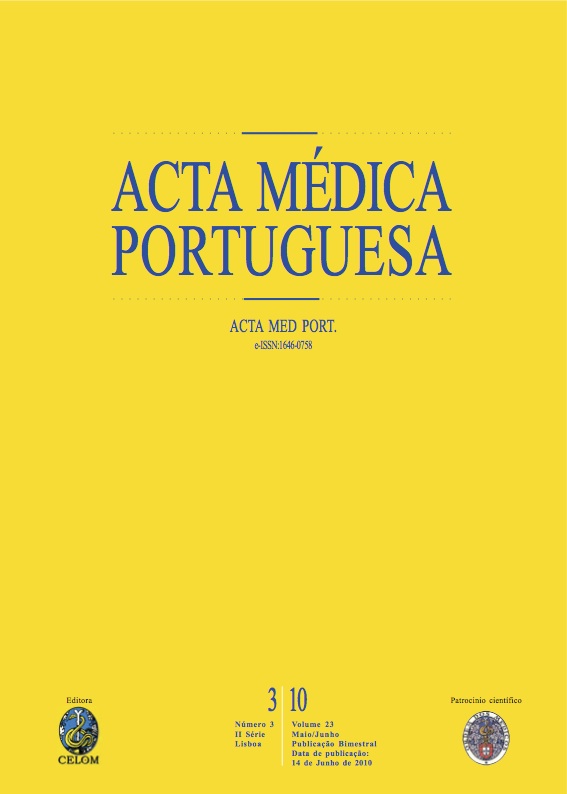Obesity in preschool age - too early to be too heavy!.
DOI:
https://doi.org/10.20344/amp.644Abstract
Portugal is at the second position of childhood obesity prevalence, among the 7-9-year-old children. There are few national studies about obesity in pre-school age, although international data point to the increase of overweigh in this age, and the beginning of obesity by the age of 3 years. The knowledge of risk factors is determinant to establish preventive measures. Objectives: To identify the prevalence of overweight and obesity among pre-schoolers attending Evora's public kindergartens, recognise risk factors and access parents' perception of children's nutritional status. Methods: Written questionnaire applied to the parents and anthropometric measure of children. Results: Among the 314 participants (176%, 137&), 275 were evaluated for anthropometric parameters. Prevalence of overweight was 25,4% and 11,6% had obesity. The 3-year-old group was the highest affected, with 33,3% overweight. The risk factors identified were female gender (odds ratio 1,8) and prematurity (odds ratio 4,8). There was no statistical difference between normal weight and overweight groups in what concerned birth weight, number of kilos increased during pregnancy, length of breast feeding, age of the beginning of solid foods, actual diet, exercise and sedentary behaviour. The presence of at least one parent with excess weight was identified in 65,4% of the sample, without relation to nutritional status. Eighty seven per cent of the parents of overweight children identify them as being equal to or under the average weight for age, in a scale of adapted figures. Conclusions: The overweight prevalence detected in this study is above most countries, only surpassed by North America. Parental obesity and their neglect of overweight children might contribute to a lower compliance to preventive strategies. Therefore we suggest that more reinforce must be given to the preventive community measures already started.Downloads
Downloads
How to Cite
Issue
Section
License
All the articles published in the AMP are open access and comply with the requirements of funding agencies or academic institutions. The AMP is governed by the terms of the Creative Commons ‘Attribution – Non-Commercial Use - (CC-BY-NC)’ license, regarding the use by third parties.
It is the author’s responsibility to obtain approval for the reproduction of figures, tables, etc. from other publications.
Upon acceptance of an article for publication, the authors will be asked to complete the ICMJE “Copyright Liability and Copyright Sharing Statement “(http://www.actamedicaportuguesa.com/info/AMP-NormasPublicacao.pdf) and the “Declaration of Potential Conflicts of Interest” (http:// www.icmje.org/conflicts-of-interest). An e-mail will be sent to the corresponding author to acknowledge receipt of the manuscript.
After publication, the authors are authorised to make their articles available in repositories of their institutions of origin, as long as they always mention where they were published and according to the Creative Commons license.









